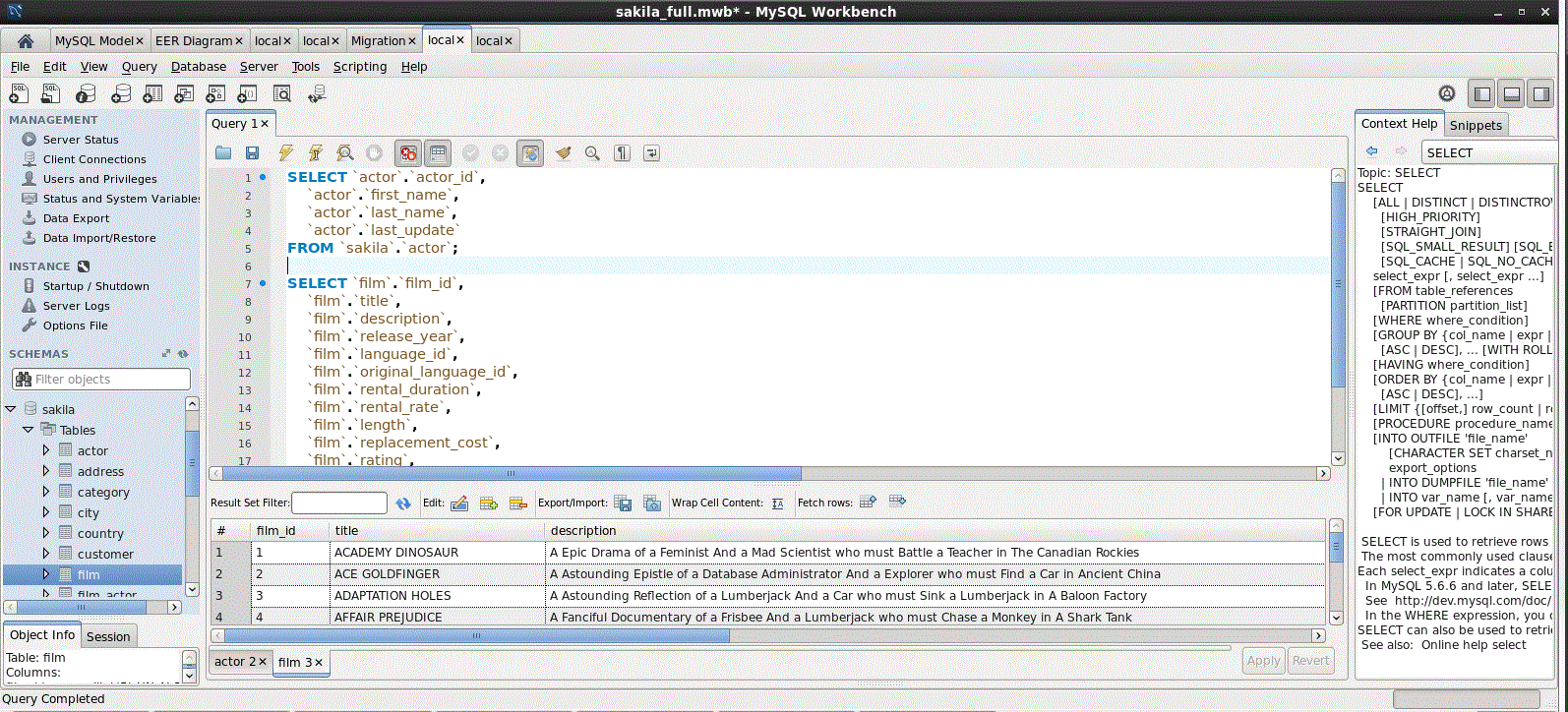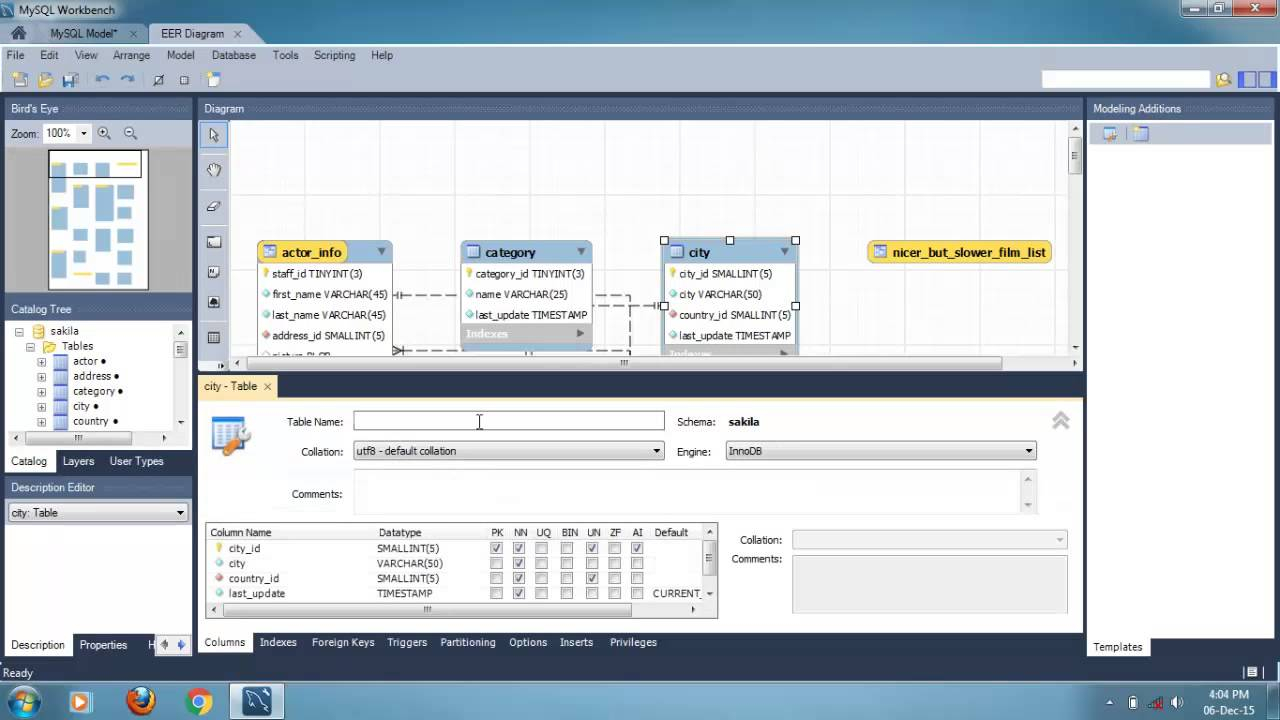

- #Mysql workbench 6.3 create database how to#
- #Mysql workbench 6.3 create database full#
- #Mysql workbench 6.3 create database pro#
- #Mysql workbench 6.3 create database password#

To connect to a different database, create a new connection using the same process you used for your first connection. To manage your connections, select the Database menu and choose the Connect to Database option, or press ⌘U on the Mac or CTRL+U on Windows and Linux systems. You can easily view table data, write complex queries, and edit data from this area of MySQL Workbench, as shown in the following figure: The dropdown arrow next to each database will allow you to expand and navigate your databases tables and objects. You will find your databases listed under the SCHEMAS area of the left navigation bar. MySQL Workbench also supports importing and exporting of MySQL dump files so you can quickly back up and restore your database. Once you’ve connected to your database, you can view the details of the MySQL instance, including database status, current connections, and database configuration, as well as users and permissions.
#Mysql workbench 6.3 create database password#
If you do not store the MySQL password in MySQL Workbench, a prompt will request the password each time you attempt to connect to the database.

This might be something like database_for_myapp or something more descriptive.

Once you’ve installed MySQL Workbench on your computer, launch the program.
#Mysql workbench 6.3 create database how to#
For example, you can follow the tutorial How To Install MySQL on Ubuntu 14.04 to get up and running quickly.
#Mysql workbench 6.3 create database pro#
Using tools like HeidiSQL for Windows, Sequel Pro for macOS, or the cross-platform MySQL Workbench, you can connect securely to your database over SSH, bypassing those cumbersome and potentially insecure steps. And allowing connections to MySQL directly can be a security concern. But connecting remotely to your database server usually entails configuring MySQL to listen on every interface, restricting access to port 3306 with your firewall, and configuring user and host permissions for authentication. Querying this data graphically on your local computer is the easiest way to interact with your database.
#Mysql workbench 6.3 create database full#
Your database server contains tables full of important data.


 0 kommentar(er)
0 kommentar(er)
